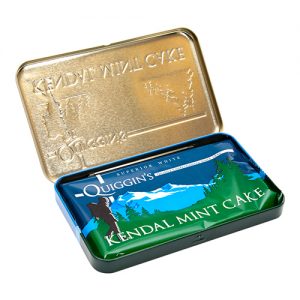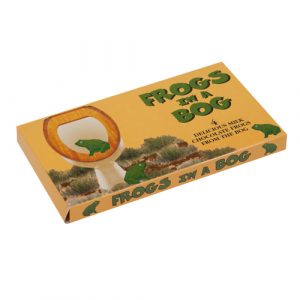Ask people today what Kendal is famous for, and they will say mint cake (we hope!) But when Quiggin’s moved to Kendal in 1872, we were already following in the footsteps of some well-established industries.
To show you how Kendal became the place it is today, we’re going to share some stories about Kendal’s rich industrial past.

Wool
With a Latin town motto of ‘Panus Mihil Panis’ – wool is my bread – it comes as no surprise that Kendal once had a thriving wool trade.
Links between the wool industry and Kendal go right back to 1260. But it wasn’t until the 14th century that the wool industry began to flourish.
During the 15th century, Kendal was trading wool and textiles nationally. It was known for its coarse woollen cloth called Kendal Green which was worn by the working classes. In fact, in Kendal, a law was passed, meaning 95% of the population could only wear these harsh, thick clothes.
However, when King James I took to the throne, England saw the rise of a wealthier middle class. They could afford better quality clothes and demanded more from textile producers. No longer were single-coloured garments acceptable and more intricate patterns were sewn and designed.
The Industrial Revolution
By the end of the 18th century, steam-powered factories were up and running. The Industrial Revolution came to Kendal. However, it came too late. The mechanisation of factories was carried out too slowly, and Kendal saw wool production move to factories in Yorkshire and Scotland.
Despite the decline, Kendal still remembers its wool industry. The town’s coat of arms shows images of the teasel and bale hooks representing the superb wool trade Kendal once had.
Snuff
Less popular today, snuff was once one of the New World’s marvels and was a desirable pleasure for the rich and powerful. So how did it end up being made in Kendal?
Snuff is made from dried tobacco leaves, and tobacco was imported from America to Whitehaven, Workington, and Maryport’s west coast ports. From there it was taken by pack-horse to Kendal.
It was Thomas Harrison, a local, who brought his expertise and the right machinery from Scotland and set up a snuff mill on the River Mint. A few years later, his son bought 27 Lowther Street where he set up home and opened another snuff factory. He also brought with him the recipe of the original ‘Kendal Brown’ snuff. And, just like Quiggin’s Kendal Mint Cake, this formula is still used today by the present snuff makers, Gawith, Hoggarth & Co Ltd.
Shoes
When in 1842, Robert Miller was offered a room at Ireland’s Sand Aire Mill little did he know his ‘shoemaking accessories merchant and leather factor’ business would become a global success.
Robert had been to London and had learned his trade. He had specialist knowledge of foreign leathers and skins and used his expertise to set up as a shoemaker. Within two years he had outgrown his room at the mill and in 1845, he moved into Bridge End, Netherfield. This was where the head office and main factory remained.
By 1853 he had partnered with his brother and bought the entire Netherfield site. The company ‘Somervell Brothers’ became Kendal’s largest employers. Nearly every family in Kendal had someone who worked at the factory.
A Unique Brand Name
So why did ‘Somervell Brothers’ decide to change the company name to K Shoes?
The company transitioned into footwear manufacturers, and the boot and shoe upper parts were stitched together on-site. The soles were then stitched at home by the workers who brought in finished shoes for payment.
This set-up had a flaw. Some workers realised they could replace the high-quality leather with a cheaper version and sell for a profit.
To stop this, someone at head office decided to mark all shoes’ soles with a leather punch. They picked up a punch that happened to have a K on it and from then on all shoes were marked with the letter K. People began to ask specifically for the K shoes.
In 1949, the company made it official and changed its name to K Shoes.
Kendal Mint Cake
We love looking into Kendal’s past and sharing what we know with our customers. It’s a real honour to be part of Kendal’s illustrious history and know that we will be contributing to its future.
These industries may no longer produce their goods, but their influence on the town is evident, and they have most definitely left their mark.
If you are missing Kendal, or just fancy trying something new, why not pop to our online shop and buy yourself some Kendal mint cake. It’s produced in Kendal using the same recipe developed all those years ago.
The post Kendal’s Fine Industrial Past appeared first on Quiggin's Kendal Mint Cake.
source https://www.originalkendalmintcake.co.uk/news/kendals-fine-industrial-past/?utm_source=rss&utm_medium=rss&utm_campaign=kendals-fine-industrial-past






No comments:
Post a Comment